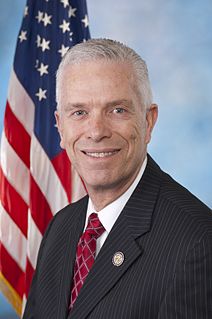A Quote by Bill Johnson
There was no avoiding the fact that we were going to hit our debt ceiling.
Related Quotes
If you ask the question of Americans, should we pay our bills? One hundred percent would say yes. There's a significant misunderstanding on the debt ceiling. People think it's authorizing new spending. The debt ceiling doesn't authorize new spending; it allows us to pay obligations already incurred.
Obama has been perhaps the most partisan President since Truman. He hasn't learned to be civil - note his insulting speech to Paul Ryan, who did us the courtesy of scoring a budget. The president has to talk to Republicans when it comes to the debt ceiling. He has reached the debt ceiling before anyone expected.
No pecuniary consideration is more urgent, than the regular redemption and discharge of the public debt: on none can delay be more injurious, or an economy of time more valuable. ... Cherish public credit. One method of preserving it is to use it as sparingly as possible: avoiding occasions of expence (and) avoiding likewise the accumulation of debt ... not ungenerously throwing upon posterity the burthen which we ourselves ought to bear.
The debt ceiling at some point has to be raised. I don't think there's anybody that questions the fact that if we ended up getting in a situation where the U.S. government was sending out IOUs like the state of California did at one point, that ends up creating quite a brand problem for our country.
































